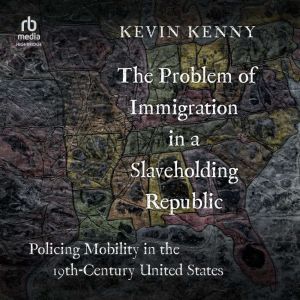

The Problem of Immigration in a Slaveholding Republic
Policing Mobility in the Nineteenth-Century United States
Author: Kevin Kenny
Narrator: Bill Andrew Quinn
Unabridged: 10 hr 33 min
Format: Digital Audiobook Download
Publisher: Highbridge Audio
Published: 01/16/2024
Synopsis
Offering an original interpretation of nineteenth-century America, The Problem of Immigration in a Slaveholding Republic argues that the existence, abolition, and legacies of slavery were central to the emergence of a national immigration policy. In the century after the American Revolution, states controlled mobility within and across their borders. Throughout the antebellum era, defenders of slavery feared that, if Congress gained control over immigration, it could also regulate the movement of free black people and the interstate slave trade. The Civil War and the abolition of slavery removed the political and constitutional obstacles to a national immigration policy. Admission remained the norm for Europeans, but Chinese laborers were excluded through techniques of registration, punishment, and deportation first used against free black people in the antebellum South. To justify these measures, the Supreme Court ruled that immigration authority was inherent in national sovereignty and required no constitutional justification.
